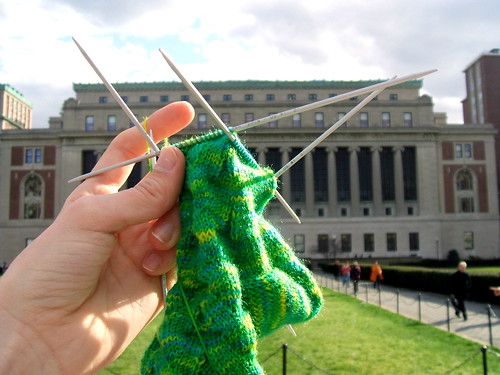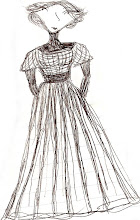For the Web 2.0 final project, two of my classmates and I created a wiki, "The Readers Among Us." It's the extracurricular book club at fictional Sunnydale High School. Michelle, Michael and I decided that a wiki would be a great way to reach teenagers; kids spend a lot of time online, and this way the book club members could connect when not in school (or in the same country!).
My reflections on this project...
Technology EffectivenessWiki: One of the greatest things about a wiki, is that anyone can contribute, make pages, comment on other contributions, and effectively, get information out to the world. For a high school book club, the discussions can continue
outside of school, at any hour of the day or night (perfect for a teenager!).
The only problem was that my classmates and I could not edit the same page at the same time.
Image generators -
Spell with Flickr. I thought this was a very creative way to make unique page headers!
Polls: I created one poll, for the teens to pick which genre would be read next. It's anonymous and offers an "other" feature. Ideally, a different poll would be created for each month, taking out that month's current genre pick.
Search engine: I created a custom search engine, so readers could find professional Young Adult book reviews. In a perfect world, this would only retrieve book reviews! Despite trying to find tune the search as best as possible, reviews of movies
based on books usually pop up as the top hits. While this could be helpful for that one student who is trying to avoid reading a book, it is frustrating when trying to find ALA reviews.
Concepts and ideas of Library 2.0 and participatory library serviceInformation is now in the hands of everyone, not just a select few people. Anyone in the world can create information --- and distribute it. There are so many resources now available. Instead of just encyclopedias and manuals, I can google my query, and come up with hits from online encyclopedias,
Wikipedia, even videos on
youtube or
hulu.com.
Social networking tools, such as
Facebook,
Livejournal, Blogger,
TeacherLibrarianNing, and
Shelfari let people join together through cyberspace. Whether to post pictures online and send out party invites (Facebook), blog about anything in the world (Blogger, Livejournal and other blogging website), connect with other teacher-librarians, or even just see who has read what (Shelfari, LibraryThing), these tools allow people to stay connected, find common interests. Everyday I check several of those sites to see what my friends are up to, what has been blogged about in the knitting community, and to add more books to my shelf!
Additionally, there are tons of Web 2.0 tools, available for free! My favorite is
del.icio.us, which is how I bookmark and tag websites.
Flickr toys are also a lot of fun, especially maniupulating my photos for blogging!
So what does this mean for school libraries and librarians in the 21st Century? It's not just enough to teach how to cite book sources and use an index. Now, with the wealth of information available on the internet, school librarians must teach students what makes a website reliable. Internet safety is another concern. Lastly, I think incorporating Web 2.0 into the classroom will be beneficial and interesting for students and teachers. Having students use VoiceThread to create stories, or using Skype to conference with students in other parts of the country? Pretty awesome. I know I want to use PhotoStory to "store" and present my lessons (in case of my absence, the kids will still learn!).
Technology Issues
While using a wiki as a book review forum is great, there are some problems. For starters, two or more people cannot edit a page at the same time. I don't know exactly why, but the result is always a mish-mosh (that does not look too great).
My other concern is that postings cannot be moderated
until they have been posted. As a librarian-teacher, I would ideally like to review postings before they are published. This would be to ensure that my students would not give out crucial personal information by accident.
Collaboration Issues
My classmates and I bounced ideas off one another in person and through gmail. We were interested in communicating via Skype, except with work and class schedules, it proved too hectic to find a time everyone could talk in real time. This past week I've had some family issues, so my computer time was limited to the late evening. I really liked communicating via gmail though. We were all able to see the running "thread" of our emails! This made it very easy to refer to past emails. Instead of digging around through an inbox, I was able to scroll up the page and expand an earlier email.



